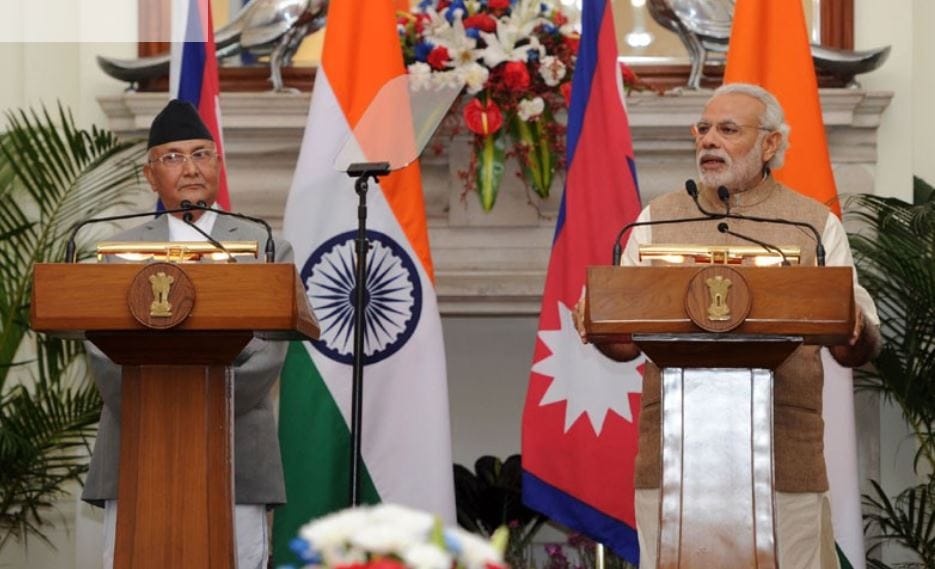Introduction: A Crucial Reassessment
Relations between India and Nepal have experienced significant turbulence since 2015 when both Narendra Modi and Khadga Prasad Oli were prime ministers. With both leaders now back in power, there exists a vital opportunity to recalibrate this bilateral relationship towards stability and positivity.
Historical Strains and Diplomatic Missteps
The bilateral strain began with the adoption of Nepal’s new constitution in 2015, which New Delhi wished to be reworked. Despite promises made by some Nepali politicians during their visits to New Delhi, the draft constitution was promulgated unamended. The aftermath saw New Delhi imposing a nearly six-month-long blockade on Nepal, ostensibly blaming Madhesi activists. This action left a deep-seated animosity that lingers to this day.
Mr. Oli’s response to the blockade was to swiftly sign ten agreements with Beijing, encompassing areas such as trade, transit, power, and transport. While the two leaders did meet post-blockade, Mr. Oli’s provocative remarks, such as suggesting the true historical Ayodhya is in Nepal and questioning India’s aggressive stance, further strained the ties.
Political Maneuvering and Geopolitical Ramifications
The political landscape in Nepal witnessed heightened Indian involvement, which extended beyond diplomatic pressures to covert activities and the promotion of Hindutva ideology by the RSS and BJP. This led to a perception of New Delhi’s interference in Nepal’s internal affairs, contravening the Panchsheel doctrine of non-interference.
The geopolitical impact of this interference has been profound. New Delhi’s attempts to influence Nepalese politics have led to a backlash, with Kathmandu seeking greater ties with Beijing. This dynamic has complicated the traditional India-Nepal relationship, necessitating a careful and strategic reset.
Economic Synergy and Mutual Benefits
Despite the political and diplomatic strains, the economic interdependence between India and Nepal remains robust. Nepal is a significant remittance-sending country to India, contributing to the livelihoods in Indian states such as Uttar Pradesh, Bihar, and Odisha. This economic symbiosis underscores the importance of maintaining a stable and friendly relationship.
New Delhi’s overbearing attitude, however, appears to be driven more by a display of power rather than genuine prowess. A recalibrated approach, recognizing Nepal’s contributions and potential, could pave the way for a more balanced and mutually beneficial economic partnership.
Advancing Regional Stability and Cooperation
As Mr. Modi and Mr. Oli navigate their renewed leadership roles, it is imperative to clear the bilateral logjam. Mr. Modi’s ‘Neighbourhood First’ policy needs a significant revamp to include a hands-off approach towards Nepal’s internal politics. Such a shift would not only stabilize Nepal politically but also bolster economic ties, which in turn, benefits India’s national security.
New Delhi must acknowledge that Nepal’s amicable relationship with Beijing does not threaten India. On the contrary, a politically and economically stable Nepal serves as a benign buffer and a potential gateway for future connectivity projects linking India to China.
Strategic Diplomatic Engagement
Revisiting the India-Nepal Eminent Persons’ Group (EPG) report, which was finalized in 2018, offers a strategic roadmap for strengthening bilateral relations. The implementation of the EPG’s recommendations can elevate the relationship to one marked by transparency, confidence, and equality.
Mr. Oli’s leadership must bring all pending bilateral matters to the forefront for open discussion and resolution. Moreover, reviving the South Asian Association for Regional Cooperation (SAARC) could foster a more cohesive South Asia, benefiting all member countries.
Conclusion: Embracing Brotherhood
The default disposition of the Nepali state and its people towards India is one of cordiality. However, historical grievances and geopolitical anxieties have clouded this natural affinity. New Delhi’s policymakers must shift from a ‘big brother’ approach to one of genuine fraternity, recognizing Nepal as an equal partner. Such a transformation is essential for nurturing a peaceful and prosperous South Asia.

Sunil Garnayak is an expert in Indian news with extensive knowledge of the nation’s political, social, and economic landscape and international relations. With years of experience in journalism, Sunil delivers in-depth analysis and accurate reporting that keeps readers informed about the latest developments in India. His commitment to factual accuracy and nuanced storytelling ensures that his articles provide valuable insights into the country’s most pressing issues.



